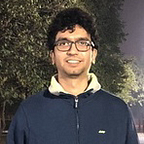Introduction to L3Cube Pune
L3Cube is a group of software professionals formed with the intent to spread awareness about open-source and related technologies. It was originally founded by Mr. Gaurav Suryagandh an alumnus of PICT Pune. It was also known as PICT Linux User Group in the earlier stages but was later renamed as we expanded to other areas and colleges.
L3Cube has mainly been associated with students from the Pune Institute of Computer Technology. The main contribution of L3Cube has been mentoring year-long undergraduate projects. Other activities of the group include conducting seminars and arranging tech talks. Initially, the group was mainly involved in networking projects so was the name coined L3-the network layer.
There have been many people from different organizations associated with L3Cube. This post talks about the projects that I have been associated with over a period of 9 years. It is meant to provide an introduction to the upcoming batch. My work has mainly been related to areas like machine learning, distributed computing, and security. Over a period of time, I have collaborated with different mentors including Gaurav Suryagandh, Varun Wadhwa, and Rahul Khengare.
The need of guiding undergraduate projects comes from the limitations of industry internships. Mostly industry internship is about making a student work on some side project which has been hanging for years or developing some POC or some long-pending feature cum bug fixing. L3Cube aims to provide students an opportunity to work on end-to-end projects without compromising on industry mentorship. My groups have worked on a host of research and product-oriented projects. While the focus has shifted to machine learning and research but groups willing to work on other areas are most welcome. Areas of machine learning include text, image, and speech processing. We encourage students to come up with their own problem statements or work on statements of their choice. We also, actively publish our research at International Conferences.
We follow a task and interview-based selection process for final-year students in this annual internship cum mentorship program. To register for the process, please drop a single mail to l3cube.pune@gmail.com specifying details of the project group(3–4 members) along with individual resumes and also specify why do you want to join L3Cube. The number of groups we select depends on the count of mentors.
For any queries please drop a mail to l3cube.pune@gmail.com
Or you can also get in touch with current students: Aditya Kane, Aabha Pingle, Anuja Patil, Aryan Patil, Gauri Takawane, Isha Joshi, Omkar Gokhale, Pranav Khairnar, Sharayu Hiwarkhedkar, Vidula Magdum
Students from Cummins CoEW: Ananya Joshi, Aditi Kajale, Janhavi Gadre, Samruddhi Deode
Following is the list of projects guided by me over time(except for last year):
Hierarchical Neural Network Approaches for Long Document Classification
L3CubeMahaSent: A Marathi Tweet-based Sentiment Analysis Dataset
Evaluation of Deep Learning Models for Hostility Detection in Hindi Text
ICodeNet — A Hierarchical Neural Network Approach for Source Code Author Identification
ShufText: A Simple Black Box Approach to Evaluate the Fragility of Text Classification Models
SnapCode — A Snapshot Based Approach to Code Stylometry
Enigma: A Hybrid Approach to File Security in Cloud
Hyaline: A Transparent Distributed Computing Framework for CUDA
SISA: Securing images using selective alteration
Background Sound Classification in Speech Audio Segments
nMase — A Search Engine for Network Trace
Computer networks have been largely adopted in small and big settings in corporate and residential environments. With the explosion of mobile traffic and the ever-increasing use of software-defined networking, network traffic monitoring holds a key position in detecting network errors and security failures. Monitoring big networks has become a herculean task with having to deal with the huge magnitude of data which is prohibitive for proper leverage considering the time and space required to exploit it. Much of the current work in this domain is focused on techniques to efficiently analyze and classify network traffic. Rule-based classification or filtering of traffic is the first major step in any analysis procedure so that analysis is performed on a focused set of packets. However defining, constructing and application of such rules involve a considerable level of difficulty. Our project addresses this issue. We believe that searching for relevant content in network trace should be as easy as searching for relevant web pages through search engines. In this project, we touch upon this much-neglected area by introducing the concept of a network search engine and ranking of network traffic. nMASE- A Search Engine for Network Trace is built upon a Boolean model of information retrieval and is capable of finding relevant content from a huge network trace based on simple natural language queries. This leads to a significant reduction in the time that network administrators spend in scanning through colossal network activity.
Students: Abhishek Chandratre, Vipul Chaskar, Prerit Auti, Ritesh Porey
Mentors: Varan Wadhva and Raviraj Joshi
Open vSwitch on windows
Problem statement is to implement a virtual switch on Windows, providing the same functionalities as provided by Open vSwitch on Linux. This virtual switch will follow the OpenFlow model and provide advanced functionalities such as QoS control, GRE-tunneling, VLAN modeling, mirroring, and support for NetFlow, sFlow, RSPAN, and other such protocols. By implementing open vSwitch on windows platform, central management of network state of various hosts running VMs on different platforms will be possible.
Students: Eshan Joshi, Tarun Gupta, Sahil Uppal
Mentors: Varan Wadhva and Raviraj Joshi
